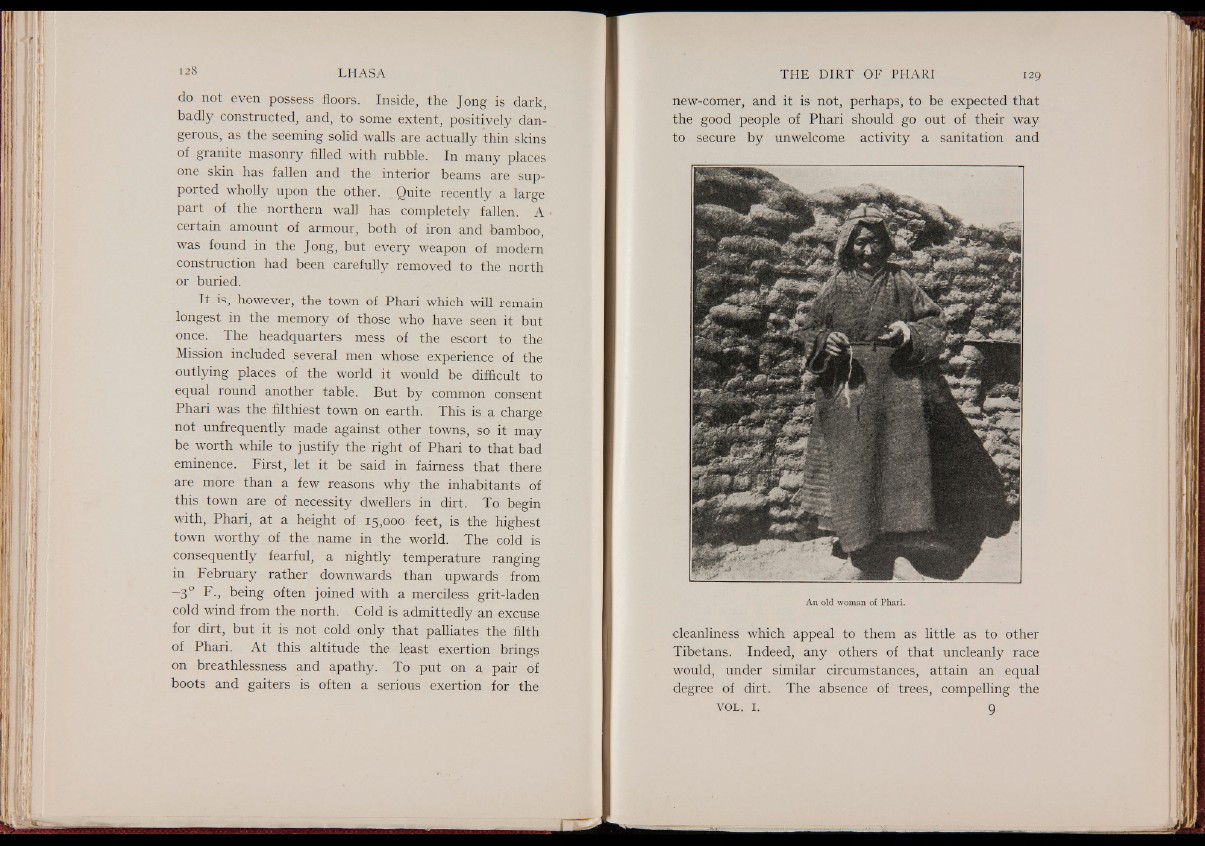
do not even possess floors. Inside, the Jong is dark,
badly constructed, and, to some extent, positively dangerous,
as the seeming solid walls are actually thin skins
of granite masonry filled with rubble. In many places
one skin has fallen and the interior beams are supported
wholly upon the other. Quite recently a large
part of the northern wall has completely fallen. A
certain amount of armour, both of iron and bamboo,
was found in the Jong, but every weapon of modern
construction had been carefully removed to the north
or buried.
It is, however, the town of Phari which will remain
longest in the memory of those who have seen it but
once. The headquarters mess of the escort to the
Mission included several men whose experience of the
outlying places of the world it would be difficult to
equal round another table. But by common consent
Phari was the filthiest town on earth. This is a charge
not unfrequently made against other towns, so it may
be worth while to justify the right of Phari to that bad
eminence. First, let it be said in fairness that there
are more than a few reasons why the inhabitants of
this town are of necessity dwellers in dirt. To begin
with, Phari, at a height of 15,000 feet, is the highest
town worthy of the name in the world. The cold is
consequently fearful, a nightly temperature ranging
in February rather downwards than upwards from
||3 0 F-j being often joined with a merciless grit-laden
cold wind from the north. Cold is admittedly an excuse
for dirt, but it is not cold only that palliates the filth
of Phari. At this altitude the least exertion brings
on breathlessness and apathy. To put on a pair of
boots and gaiters is often a serious exertion for the
new-comer, and it is not, perhaps, to be expected that
the good people of Phari should go out of their way
to secure by unwelcome activity a sanitation and
An old woman of Phari.
cleanliness which appeal to them as little as to other
Tibetans. Indeed, any others of that uncleanly race
would, under similar circumstances, attain an equal
degree of dirt. The absence of trees, compelling the
v o l . 1. 9